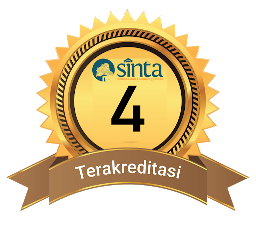Critical Thinking Skills of High School Students Through Implementation of Merdeka Curriculum in Chemistry Learning
DOI:
10.29303/cep.v7i2.6428Published:
2024-11-30Issue:
Vol. 7 No. 2 (2024): Edisi NovemberKeywords:
Critical Thinking Skills, Kurikulum Merdeka, Chemistry LearningArticles
Downloads
How to Cite
Abstract
This study aims to describe students' critical thinking skills in learning chemistry through the use of Merdeka Curriculum at MAN 2 Kota Bima. This study used a descriptive quantitative approach, with a population of all class X students totaling 420 people and a research sample of 81 people selected by systematic random sampling. Data collection includes test questions and interviews. The findings show that: first, with respect to their overall performance in chemistry lessons, grade X students show a moderate category in terms of developing critical thinking skills. Second, students demonstrate proficiency across key indicators such as evaluation, interpretation analysis and conclusion development during lessons on subjects containing chemical principles. Third, the implementation of Merdeka curriculum in chemistry learning has not been carried out according to the stages mapped to implement detailed procedures that are inclusive in the outline made to prepare learning materials.
References
Anggraena, Y., Felicia, N., Ginanto, D. E., Pratiwi, I., Utama, B., Alhapip, L. & Widiaswati, D. (2021). Kurikulum untuk Pemulihan Pembelajaran. Jakarta: Pusat Kurikulum dan Pembelajaran BSKAP
Cholilah, M., Tatuwo, A. G. P., Rosdiana, S. P., & Fatirul, A. N. (2023). Pengembangan kurikulum merdeka dalam satuan pendidikan serta implementasi kurikulum merdeka pada pembelajaran abad 21. Sanskara Pendidikan dan Pengajaran, 1(02), 56-67.
Handayani, Y., Asia, E., & Hidayat, S. (2023). Peningkatan Kemampuan High Order Thinking Skills (HOTS) melalui Project-Based Learning (PjBL) dalam Implementasi Kurikulum Merdeka. PTK: Jurnal Tindakan Kelas, 4(1), 48–60.
Ichsan, I. Z., Sigit, D. V., & Miarsyah, M. (2019). Environmental Learning based on Higher Order Thinking Skills: A Needs Assessment. International Journal for Educational and Vocational Studies, 1(1), 21–24.
Irwansyah, T., Wibowo, A., & Pratama, A. (2024). Pengaruh strategi pembelajaran project-based learning terhadap kemampuan berpikir kritis dan kemampuan berpikir kreatif implementasi kurikulum merdeka pada pembelajaran Ekonomi kelas Xi SMAN 64 Jakarta. Jurnal Inovasi Pendidikan, 6(2).
Mantiri, J. (2019). Peran Pendidikan dalam Menciptakan Sumber Daya Manusia Berkualitas di Provinsi Sulawesi Utara. Jurnal Civic Education. 3(1). 20-26.
Nuraeni, S., Feronikah, T. & Yunika, L. (2019). Implementasi Self-Efficacy dan Keterampilan Berpikir Kritis Siswa pada Pembelajaran Kimia di Abad 21. Jambura Journal of Educational Chemistry. 1(2), 49-56.
Nuraini, R. & Suparman. (2019). Deskripsi Kemampuan Berpikir Kritis dan Kreatif Siswa melalui Penerapan Pendekatan Saintifik. Prosiding Seminar Nasional Etnomatnesia.
Prasetyani, E., Hartono, Y., & Susanti, E. (2016) Kemampuan Berpikir Tingkat Tinggi Siswa Kelas XI dalam Pembelajaran Trigonometri Berbasis Masalah di SMA Negeri 18 Palembang. Jurnal Gantang, 1(1), 31–40.
Rahayu, R., Rosita, R., Rahyuningsing, Y. S., Hernawan, A. H. & Prihantini. (2022). Implementasi Kurikulum Merdeka Belajar di Sekolah Penggerak. Jurnal Basicedu, 6(4), 6313-6319.
Rosa, E., Destian, R., Agustian, A., & Wahyudin, W. (2024). Inovasi Model dan Strategi Pembelajaran dalam Implementasi Kurikulum Merdeka: Inovasi Model dan Strategi Pembelajaran dalam Implementasi Kurikulum Merdeka. Journal of Education Research, 5(3), 2608-2617.
Sadieda, L. U., Wahyudi, B., Kirana, R. D., Kamaliyyah, S. & Arsyavina, V. (2022). Implementasi Model Blended Learning pada Pembelajaran Matematika Berbasis Kurikulum Merdeka. Jurnal Review Pembelajaran Matematika, 7(1), 55-72.
Subekti, A. W. & Khoirunnisa, F. (2018). Penggunaan Rasch Model untuk Mengembangkan Instrumen Pengukuran Kemampuan Berikir Kritis Siswa pada Topik Ikatan Kimia. Jurnal Zarah. 6(2), 68-75.
Sugiyono. (2016). Penelitian Pendidikan Metode Penelitian Kuantitatif, Kualitatif, dan R&D. Bandung: Alfabeta.
Susilowati, E. (2022). Implementasi Kurikulum Merdeka Belajar dalam Pembentukan Karakter Siswa pada Mata Pelajaran Pendidikan Agama Islam. Al-Miskawaih Journal of Science Education 1(1), 116-132
Syaidah, U., Suyadi, B., & Ani, H. M. (2018). PENGARUH KOMPETENSI GURU TERHADAP HASIL BELAJAR EKONOMI DI SMA NEGERI RAMBIPUJI TAHUN AJARAN 2017/2018. JURNAL PENDIDIKAN EKONOMI: Jurnal Ilmiah Ilmu Pendidikan, Ilmu Ekonomi Dan Ilmu Sosial, 12(2), 185
Theodora, B. D. (2016). Pengaruh Keterampilan Mengajar Guru Terhadap Hasil Belajar Siswa Sma Se-Kota Malang Yang Di Kontrol Dengan Variasi Sumber Belajar. Journal of Accounting and Business Education, 2(4), 92764.
Widyaningtyas, T. & Widiatmoko, A. (2014). Media Pembelajaran Berbasis WEB pada Mata Pelajaran Kimia. Tekno, 2(1), 47-51.
Yanti, R., Prihatin, T., & Khumaedi, K. (2021). ANALISIS KEMAMPUAN LITERASI SAINS DITINJAU DARI KEBIASAAN MEMBACA, MOTIVASI BELAJAR DAN PRESTASI BELAJAR. INKUIRI: Jurnal Pendidikan IPA, 9(2), 147–156.
Author Biographies
Dian Galuh Pratiwi, Pendidikan Kimia FKIP UNRAM
Saprizal Hadisaputra, Universitas Mataram
Syarifa Wahidah Al Idrus, Universitas Mataram
License
Copyright (c) 2024 Dian Galuh Pratiwi, Saprizal Hadisaputra

This work is licensed under a Creative Commons Attribution-ShareAlike 4.0 International License.
Authors who publish with Chemistry Education Practice agree to the following terms:
- Authors retain copyright and grant the journal right of first publication with the work simultaneously licensed under a Creative Commons Attribution License 4.0 International License (CC-BY-SA License). This license allows authors to use all articles, data sets, graphics, and appendices in data mining applications, search engines, web sites, blogs, and other platforms by providing an appropriate reference. The journal allows the author(s) to hold the copyright without restrictions and will retain publishing rights without restrictions.
- Authors are able to enter into separate, additional contractual arrangements for the non-exclusive distribution of the journal's published version of the work (e.g., post it to an institutional repository or publish it in a book), with an acknowledgement of its initial publication in Chemistry Education Practice.
- Authors are permitted and encouraged to post their work online (e.g., in institutional repositories or on their website) prior to and during the submission process, as it can lead to productive exchanges, as well as earlier and greater citation of published work (See The Effect of Open Access).






